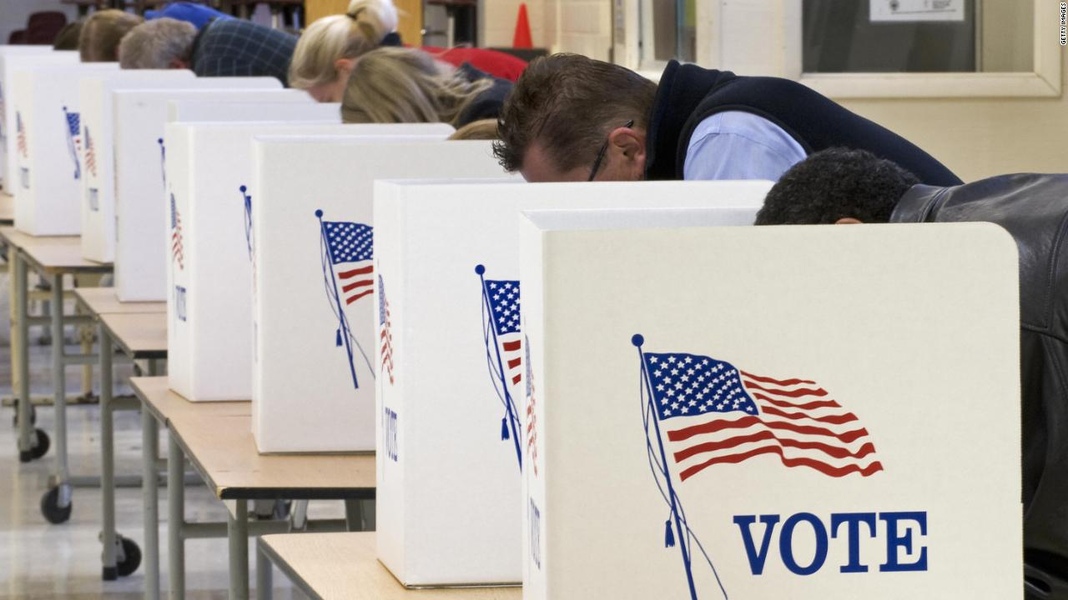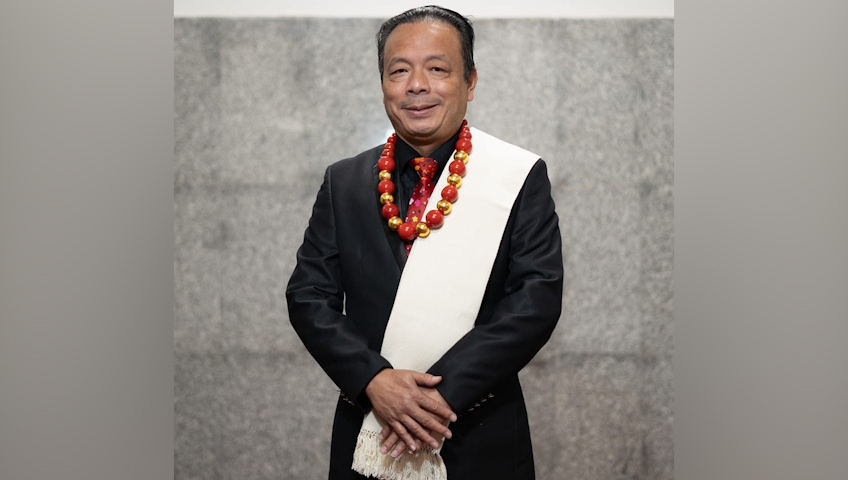Washington, Mar 26: President Donald Trump’s executive order seeking broad changes to how elections are run in the US is vast in scope and holds the potential to reorder the voting landscape across the country, even as it faces almost certain litigation.
Trump wants to require voters to show proof that they are US citizens before they can register for federal elections, count only mail or absentee ballots received by Election Day, set new rules for voting equipment and prohibit non-US citizens from being able to donate in certain elections.
A basic question underlying the sweeping actions he signed Tuesday: Can he do it, given that the Constitution gives wide leeway to the states to develop their own election procedures?
Here are some of the main points of the executive order and questions it raises.
Voters would need to provide citizenship documents to register
Trump’s order calls for the federal voter registration form to be amended so prospective voters must provide documentary proof of citizenship, such as a US passport or a birth certificate.
It also says states should turn over their voter lists and records of voter list maintenance to the Department of Homeland Security and the Department of Government Efficiency for review, and directs federal agencies to share data with states to help them identify non-citizens on their rolls.
If states refuse to collaborate with federal law enforcement to prosecute election crimes, they could potentially lose out on federal grants, the order says.
Non-citizen voting, which is already a felony in federal elections that can lead to prison time and deportation, is exceedingly rare.
Still, Trump falsely claimed in 2024 that it might happen in large enough numbers to sway the outcome of the presidential race, and it has been a top conservative priority in recent months.
Mail ballots would need to be received by Election Day
The order requires votes to be “cast and received” by Election Day and says federal funding should be conditional on state compliance with that deadline.
Currently, 18 states and Puerto Rico accept mailed ballots received after Election Day as long they are postmarked on or before that date, according to the National Conference of State Legislatures.
Perhaps no state is more notorious for drawn-out vote counts than California, the nation’s most populous. It allows ballots to be counted if they are received up to seven days following the election as long as they are postmarked by Election Day.
Most California voters cast ballots they receive in the mail, and in the pursuit of accuracy, thoroughness and counting every vote, the state has gained a reputation for tallies that can drag on for weeks or even a month or more.
In one Northern California US House primary last year, a recount settled the outcome nearly two months after the election. At the time, Secretary of State Shirley Weber, who oversees elections, said in a statement: “I understand that people want finality, but accuracy is of utmost importance.”
But the extended tallies have raised fears that they could undercut, rather than bolster, voter confidence.
Ballots could not rely on QR codes to be counted
The executive order instructs the Election Assistance Commission to amend its guidelines for voting systems to protect election integrity. That would include guidance that voting systems should not rely on ballots that use barcodes or QR codes in the vote-counting process.
Trump instructed the commission to “take appropriate action to review and, if appropriate, re-certify voting systems” under those new standards within six months of the order.
In Georgia, an important presidential battleground, virtually all in-person voters use voting machines with a large touchscreen to record their votes. The machines then print a paper ballot with a human-readable summary of the voter’s selections and a QR code, a type of barcode that is read by a scanner to count the votes.
It is not entirely clear how the executive order would affect Georgia and other jurisdictions throughout the country that use these machines.
Foreign nationals would be barred from making donations
The order cracks down on foreign nationals contributing or donating in US elections. It’s an issue that’s been bubbling in recent years in the states, as Republicans seek to dampen the influence of Swiss billionaire Hansjörg Wyss.
Wyss, who lives in Wyoming, has donated hundreds of millions of dollars to 501(c) nonprofit organisations that support liberal causes.
One of those groups, the Sixteen Thirty Fund, donated a combined USD 3.9 million to enshrine abortion protections in the Ohio Constitution. It also helped thwart a proposed constitutional amendment advanced by Ohio Republicans the previous summer that would have made passing future constitutional amendments harder.
During the run-up to last year’s presidential election, legislative Republicans linked then-president Joe Biden’s appearance on Ohio’s fall ballot to passing a ban on contributions from foreign individuals, companies, governments or political parties to campaigns for or against proposed amendments to the state constitution.
Other states have followed suit, most recently Kansas — which passed a nearly identical bill earlier this month after hearing testimony from Ohio’s secretary of state.(AP)




